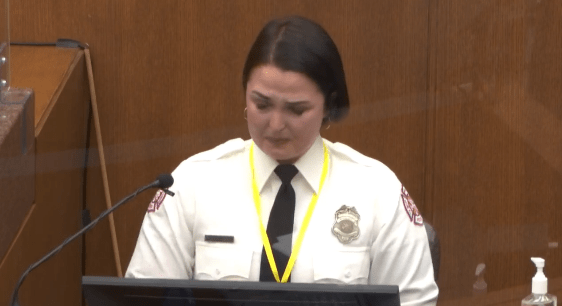Chauvin trial: Witnesses tell of anger, helplessness watching Floyd die
Tuesday's proceedings have ended for the day

Genevieve Hansen, a 27-year-old firefighter from Minneapolis, takes a moment to catch her breath while being questioned in the trial of ex-Minneapolis police officer Derek Chauvin. She took video at scene where she repeatedly asked if officers had found a pulse. She also called 911.
Screenshot of Court TV video
Go Deeper.
Create an account or log in to save stories.
Like this?
Thanks for liking this story! We have added it to a list of your favorite stories.


